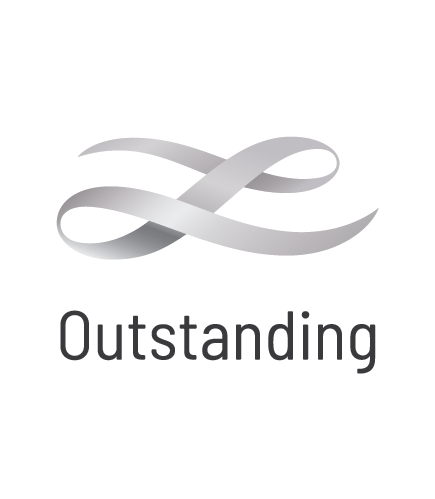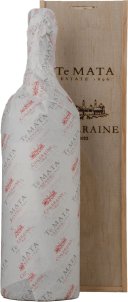LES PAGODES DE COS Second wine of Chateau Cos d'Estournel
Woodlands Cabernet Sauvignon
Our 2010 Cabernet Sauvignon has an intense crimson colour. The nose reveals aromas of mixed spices, dark fruits, and toasty French oak. The palate is deep and powerful; showing a ripe spectrum of red to dark fruits combined with star anise, clove, and allspice. The finish is incredibly long, with firm but fine tannins. We consider our 2010 vintage to be the most complete and complex Cabernet Sauvignon produced at Woodlands.
Te Mata Estate Coleraine Cabernet Merlot
Te Matas Hawkes Bay estate is a prestigious winery with a rich history, producing some of New Zealands most celebrated wines. If the Langtons Classification crossed the Tasman, Te Mata Coleraine would sit alongside Grange at its very pinnacle. Established, esteemed, outstanding vintage after vintage, the glowing adjectives come thick and fast.
Moss Wood Vineyard Margaret River Cabernet Sauvignon
This legendary Cabernet Sauvignon is intensely perfumed and finely structured with cassis-blackcurrant aromas, hints of cedar and touches of violet. The oak and fruit are neatly balanced. Typically the fruit is hand-picked, de-stemmed into open tanks and hand-plunged four times a day until completion of fermentation. At the end of vinification, the wine is allowed to macerate for around 10 to 14 days prior to pressing off into barrel. The wine is matured in 30% new and seasoned French oak barriques for 24 months.
Hickinbotham The Peake Cabernet Shiraz
A luxurious combination of soft ripe autumn berries with fresh cool country cherries, this wine exemplifies the harmony that can be achieved by blending these two noble grapes together. The wine has an unctuous elegance that caresses the palate with a structure that is exceeded only in its width by its length. Still a youthful creature, this wine will age gracefully for decades to come. A blend of Cabernet Sauvignon (57%) and Shiraz (43%). Sourced from 1971 (100%) planted on the Estate. All batches were fermented separately and blended prior to bottling. These batches of Cabernet and Shiraz represent the pinnacle wines from the Estate, our vision is to produce a seamless integration of the best of both varieties, with great aging potential. The winemaking follow suit from the previous wines, this wine is about the best blocks of the vintage and best barrels being carefully blended. Rack and returned three times during the maturation of 15 months 100% new oak, Shiraz Burgundy coopered French oak, Cabernet Bordeaux coopered French oak Alan Hickinbotham established the vineyard bearing his name in 1971 when he planted dry- grown cabernet sauvignon and shiraz in contoured rows on the sloping site. He was a very successful builder, this his first venture into wine, but his father, Alan Robb Hickinbotham, had a long and distinguished career, co-founding the oenology diploma at Roseworthy in 36. In 2012 Clarendon, and the stately sandstone house on the property, was purchased by Jackson Family Wines; it is run as a separate business from Yangarra Estate Vineyard, with different winemaking teams and wines. The Hickinbotham Clarendon Vineyard covers a steep cut of country from the ridgetops above the village of Clarendon to the Onkaparinga River in the gorge below. Since its establishment in 1971, the Hickinbotham vineyard has become a part of Australias wine heritage, supplying fruit to produce many of Australias greatest wines. The Clarendon Vineyard has sold select parcels to Penfolds for Grange and to Hardys for their equivalent white flagship, the Eileen Hardy Chardonnay.
St Hugo Orlando Cabernet Sauvignon
Château d'Issan Margaux
The 2010 Chateau d'Issan is 60% Cabernet Sauvignon and 40% Merlot, showing 'classic Margaux' in its perfume, finesse and apparent elegance. Soils are gravel and clay, which contributes to the high-tones of perfume from the wine, and though an estate that is neccesarily clawing its way back to a higher profile, is doing so with deeds in bottle over showmanship. On its side, the vineyard is dense with older vines that naturally offer lower yields, allowing for a higher quality of fruit for the winemaking team, in turn producing a wine of stellar quality from 2010.
Vasse Felix Tom Cullity Cabernet Sauvignon Malbec
Taylors The Visionary Cabernet Sauvignon
This Cabernet Sauvignon gives pronounced flavours of chocolate, red berries and black cherry skins with echoes of light tobacco and bramble on the finish.
Woodlands Shelley Anne Cabernet Sauvignon
One of the early pioneers of the Margaret River region, Woodlands' vineyards date back to 1973. As curator of these historic vineyards, Stuart & Andrew Watson have firmly re-established Woodlands into the top echolon of Margaret River producers. Sourced from an the outstanding 2008 vintage, the Shelley Anne Cabernet Sauvignon shows cassis, mulberry and blackcurrant with that typical bay leaf and cedar undertones. A wine that will live for well over a decade.

















